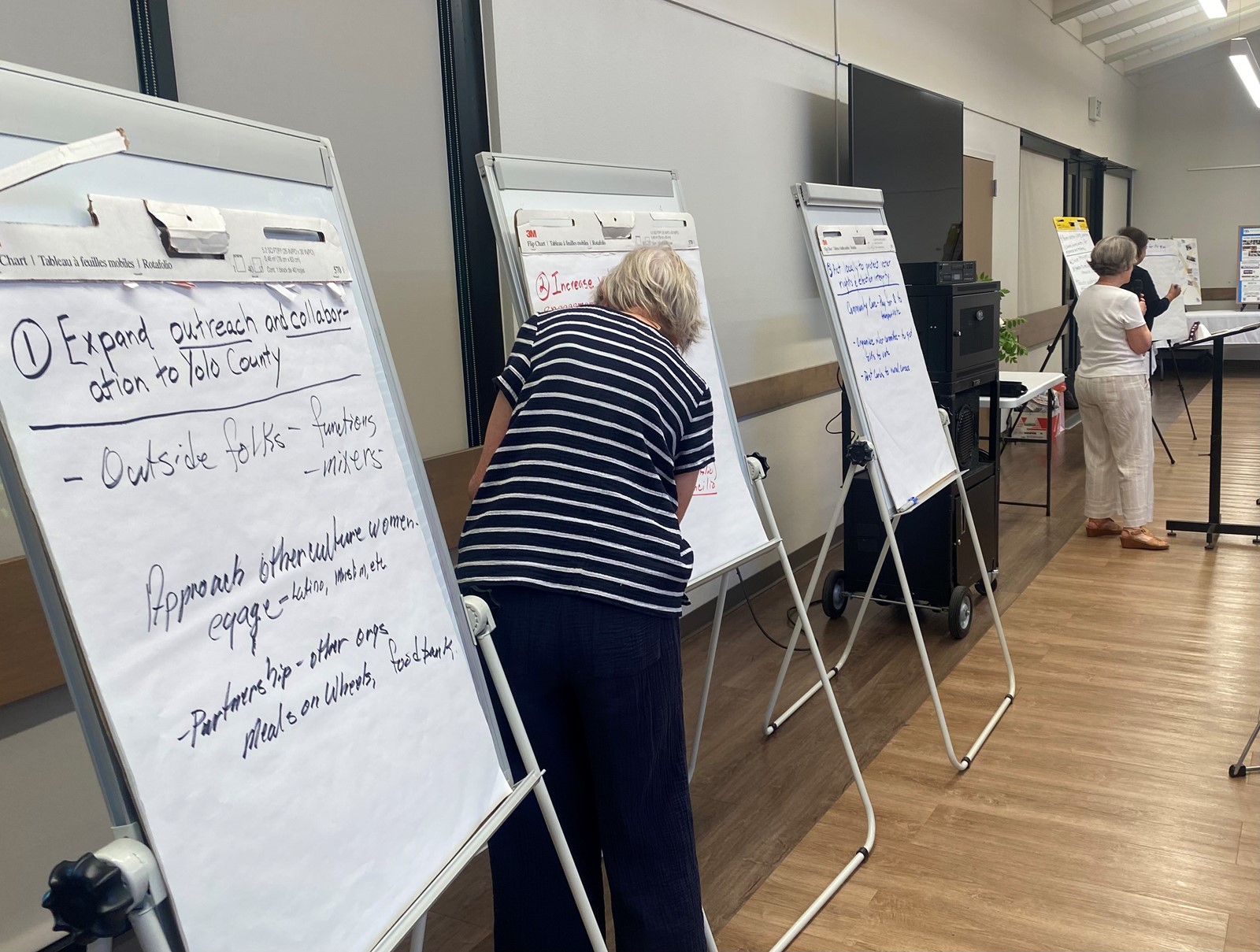
The League of Women Voters has adopted a position of advocating for mental and behavioral health programs and set its goals for 2025-2026.
As agreed by a quorum of League members during its annual meeting held Saturday at the Davis Veterans Memorial Center, the 2025-2026 program will continue to “promote democracy” and provide education on local issues.
Under promoting democracy, the League states it will work to expand outreach and collaboration with all cities, rural areas and community groups “serving under-represented/served groups and increase membership countywide” as well as increase voter registration and civic engagement in high schools and college, act locally to protect voter rights and election integrity.
As for educating people on local issues, the League will review its existing positions on climate, housing and water “for relevance and referral” to the appropriate committees to see if the positions should be changed or studied further. As well, the League will advocate for expanding mental health care services.
The newly combined League of Women Voters of Yolo County — which includes members from Woodland, Davis and rural communities — also unanimously ratified a position statement and consensus objectives for countywide mental health services. Previous co-presidents of the League were Lorna Carriveau and Michelle Famula. After Saturday’s meeting, Famula is serving as president while Carriveau is secretary.
There are around 175 members of the countywide League.
Yolo County already offers a variety of mental health programs, but funding isn’t guaranteed. As well, it’s the opinion of the League that services should be expanded to be more inclusive and effective.
Like other counties, Yolo offers three phone numbers for those seeking emergency services such as 911 for police, fire and medical aid response, 988 for suicide intervention and crisis support, and 211 for information and community resources.
But it is the League’s position, services need to go beyond simply offering phone numbers to those in need.
The six objectives to be advocated by the League put a focus on visible and accurate consumer information, timely access to care and data to support the effectiveness of programs.
Further, the objectives fall into four categories, covering communication, access, crisis services and effectiveness.
Rationale for each of the positions basically states that consumers lack sufficient information to access services and are more likely to experience “escalating problems that go unaddressed.” Access to some programs for consumers is also limited due to their working hours or the hours of operation by county staff, along with lack of transportation.
According to the League, while the county has recognized the need for a 24-7 evaluation and stabilization center providing crisis services for many years — particularly to those with a serious mental illness — it has not been able to put a program in place.
“Such services are costly but form a cost-benefit perspective early response to a crisis situation, and more immediate assessment, treatment and referral to follow-up care by clinically trained staff reduces the high costs of inpatient care,” the position paper states.
Under “communication,” the League has agreed that the Board of Supervisors and municipalities should “prioritize support and funding for 211 or a more specifically focused mental health/behavioral health directory to assist with updated and accurate program and services resources information.”
Additionally, the League is advocating the county’s Department of Mental Health should “more widely publicize and distribute mental health and behavioral health resource information in multiple languages using county media services and displaying hard copy information prominently in public places.
Regarding “access,” the League feels county contracted service providers “should provide adequate access to mental health and behavioral health services including the adaptation of hours to meet community need.” It also feels on-call services, or telehealth services “could be considered as a more cost-effective alternative to permanently scheduled staffing of positions,” which would provide evening or weekend hours in some locations.
As for “crisis services,” the League is agreed Yolo County Health and Human Services should offer a 24-7 ‘Crisis Stabilization Center’ for mental health and behavioral health clients.
In terms of “effectiveness,” the League also agreed that both Yolo County Health and Human Services and the Yolo County Department of Mental health “should use data analysis to determine if mental health/behavioral health services are effective.”


 PREVIOUS ARTICLE
PREVIOUS ARTICLE
